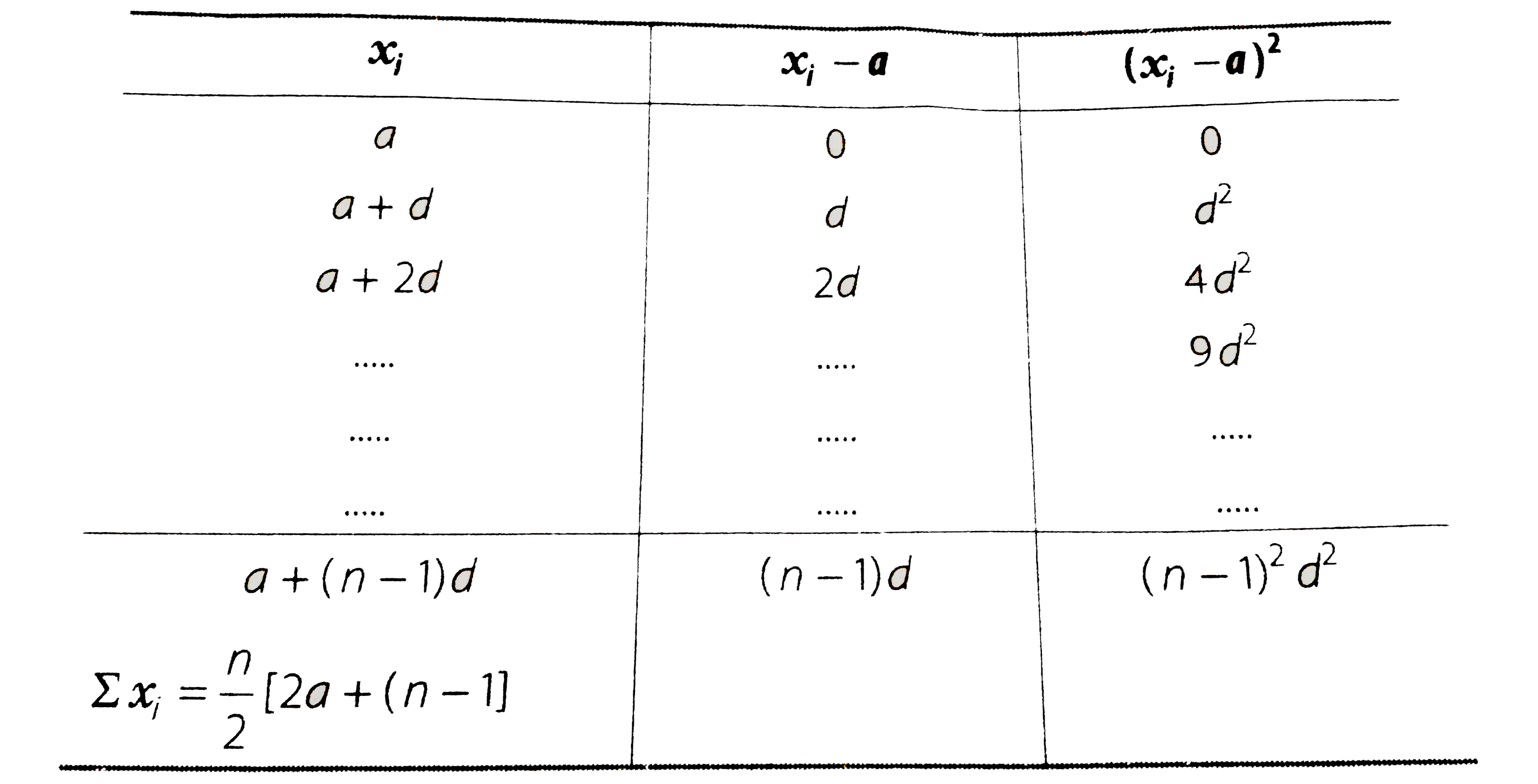Let Sn denote the sum of n terms of an AP whose first term is a. If common difference d is given by d=Sn−kSn−1+Sn−2 , then k is :
To solve the problem, we need to find the value of k in the given equation for the common difference d of an arithmetic progression (AP).
1. Understanding the Sum of n Terms of an AP:
The sum of the first n terms of an arithmetic progression (AP) is given by:
Sn=n2(2a+(n−1)d)
where a is the first term and d is the common difference.
2. Finding the nth Term:
The nth term An can be expressed in terms of the sums:
An=Sn−Sn−1
3. Finding the Common Difference:
The common difference d can also be expressed as:
d=An−An−1
Substituting the expressions for An and An−1:
d=(Sn−Sn−1)−(Sn−1−Sn−2)
Simplifying this gives:
d=Sn−2Sn−1+Sn−2
4. Equating the Two Expressions for d:
According to the problem, we have:
d=Sn−kSn−1+Sn−2
Now, we can equate the two expressions we derived for d:
Sn−2Sn−1+Sn−2=Sn−kSn−1+Sn−2
5. Simplifying the Equation:
By canceling Sn and Sn−2 from both sides, we get:
−2Sn−1=−kSn−1
This can be simplified to:
2Sn−1=kSn−1
6. Finding k:
Assuming Sn−1≠0, we can divide both sides by Sn−1:
k=2
Final Answer:
Thus, the value of k is:
2
The sum of the first n terms of an arithmetic progression (AP) is given by:
Sn=n2(2a+(n−1)d)
where a is the first term and d is the common difference.
The nth term An can be expressed in terms of the sums:
An=Sn−Sn−1
The common difference d can also be expressed as:
d=An−An−1
Substituting the expressions for An and An−1:
d=(Sn−Sn−1)−(Sn−1−Sn−2)
Simplifying this gives:
d=Sn−2Sn−1+Sn−2
According to the problem, we have:
d=Sn−kSn−1+Sn−2
Now, we can equate the two expressions we derived for d:
Sn−2Sn−1+Sn−2=Sn−kSn−1+Sn−2
By canceling Sn and Sn−2 from both sides, we get:
−2Sn−1=−kSn−1
This can be simplified to:
2Sn−1=kSn−1
Assuming Sn−1≠0, we can divide both sides by Sn−1:
k=2
Thus, the value of k is:
2
Topper's Solved these Questions
Similar Questions
Find the mean of first n terms of an A.P. whose first term is a and common difference is d.
View SolutionIf Sn denote the sum to n terms of an A.P. whose
first term is a and common differnece is d , then
Sn−2Sn−1+Sn−2 is equal to
View SolutionIf Sn denotes the sum of n terms of an A.P. whose common difference is d and first term is a, find Sn−2Sn−1+Sn−2
View SolutionIf the sum of n terms of an A.P. is Sn=3n2+5n . Write its common difference.
View SolutionThe sum of first n terms of an A.P. is 5n2+4n, its common difference is :
View SolutionIf Sn denote the sum of n terms of an A.P. with first term a and common difference d such that SxSkx is independent of x , then (a) d=a (b) d=2a (c) a=2d (d) d=−a
View SolutionDetermin mean and standard deviation of first n terms of an AP whose first term is a and common difference is d.

View SolutionFind the mean and standard deviation of first n terms of an A.P. whose first term is a and common difference is d.
View SolutionFind the rth term of an AP sum of whose first n terms is 2n+3n2.
View SolutionWrite the nth term of an A.P. the sum of whose n terms is Sn .
View Solution
